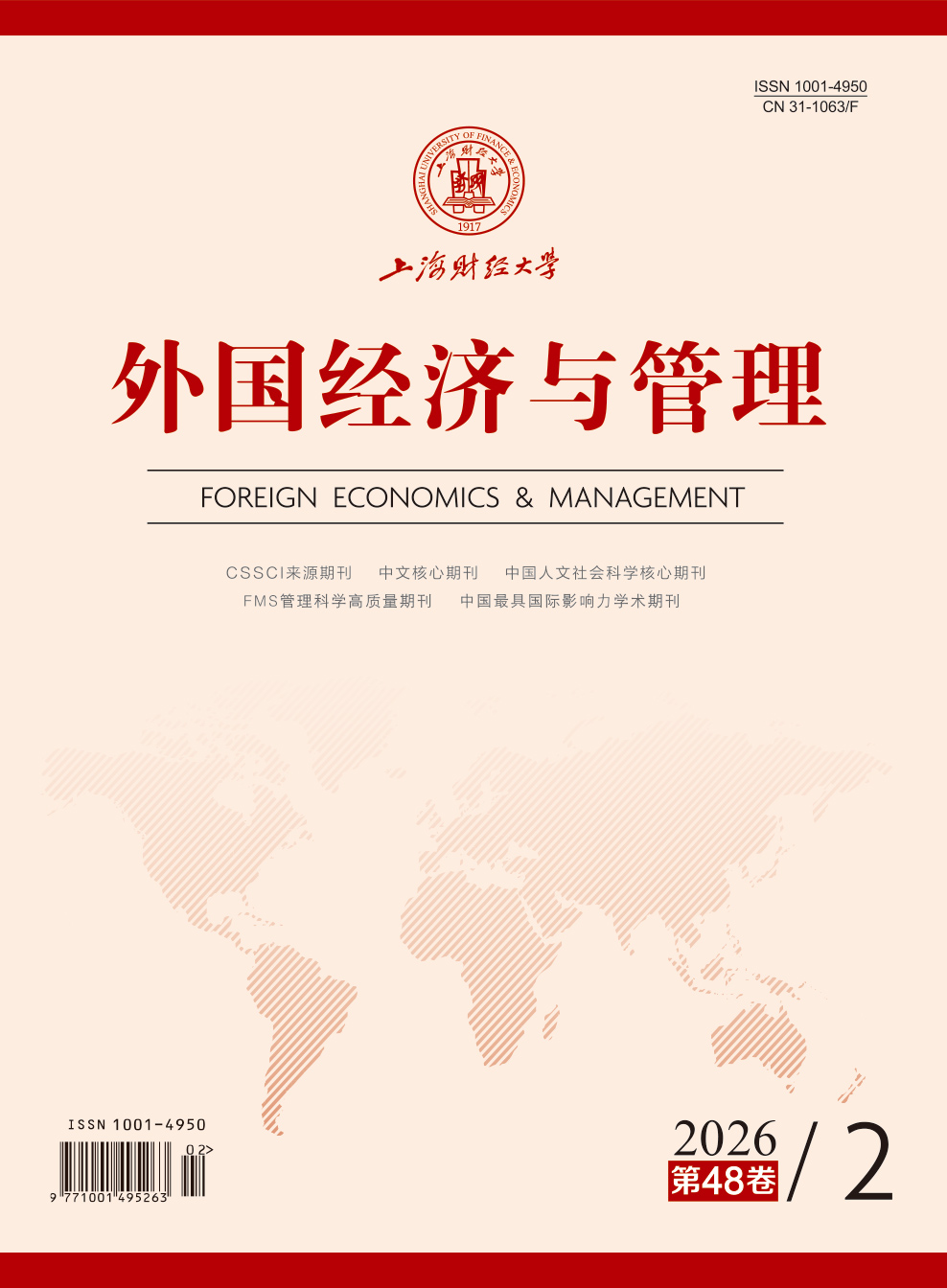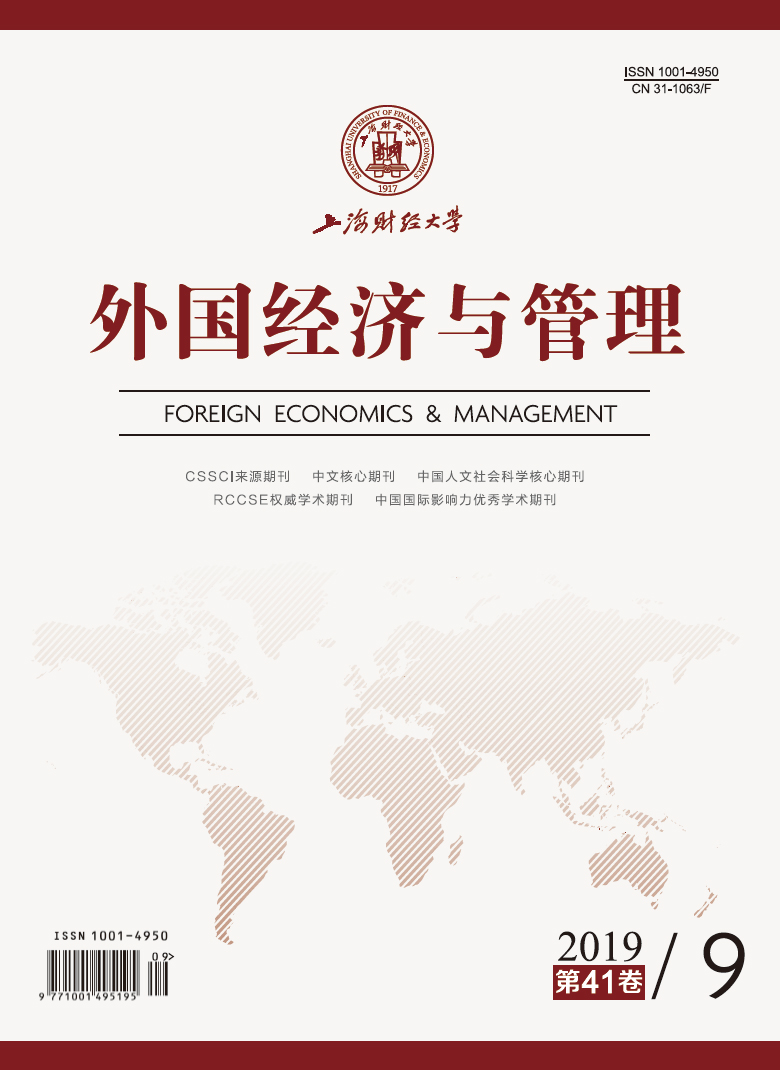Based on the empirical data of China’s A-share manufacturing listed companies in 2008—2016, we investigate the impact of TMT international experience on the internationalization process of enterprises, and further analyze the contextual effect of environmental uncertainty. We find that: First, with the increase of TMT international experience, enterprises will implement a more extensive, faster and more regular internationalization process; Second, with the increase of environmental volatility, the effect of TMT international experience on the internationalization scope and internationalization speed of enterprises will be enhanced, but there is no significant impact on the relationship between TMT international experience and the pace of enterprise internationalization; Third, with the improvement of environmental complexity, the effect of TMT international experience on the internationalization scope and internationalization pace of enterprises will be enhanced, but there is no significant impact on the relationship between TMT international experience and the speed of enterprise internationalization. This study has the following three contributions: First, previous studies have emphasized the impact of the owner types on the internationalization process, but few studies have examined the impact of executive characteristics on the process of enterprise internationalization from the perspective of executives, especially the question of how TMT international experience affects the internationalization process of enterprises. Therefore, based on the upper-echelons theory, this study not only provides a new perspective for a deeper understanding of the decision-making of enterprises’ internationalization process, but also contributes to enriching the research results of the pre-factors of enterprises’ internationalization process. Second, the internationalization process respectively reflect how enterprises expand in the international market from different perspectives. Therefore, the lack of systems in previous studies has made the existing literature unable to fully recognize the role of TMT international experience in the decision-making of enterprises’ internationalization process. In contrast, this study not only provides a more complete framework, clarifies the role of TMT international experience in enterprises’ international expansion, but also increases the understanding of how TMT international experience in developing economies affects enterprises’ internationalization process. Third, the upper-echelons theory believes that the impact of executive characteristics on the strategic decision-making of enterprises will be affected by contextual factors. Previous research cannot answer the question of how much executive international experience will affect enterprises’ internationalization process. To make up for the gap, we deeply analyze the contextual role of environmental uncertainty (environmental dynamics and environmental complexity)in the relationship between TMT international experience and enterprises’ internationalization process based on the perspective of open systems and related research results, and clarify the boundary conditions between them.
 / Journals / Foreign Economics & Management
/ Journals / Foreign Economics & ManagementForeign Economics & Management
JIN Yuying, Editor-in-Chief
ZhengChunrong, Vice Executive Editor-in-Chief
YinHuifang HeXiaogang LiuJianguo, Vice Editor-in-Chief
TMT International Experience, Environmental Uncertainty and the Process of Enterprise Internationalization
Foreign Economics & Management Vol. 41, Issue 09, pp. 109 - 121 (2019) DOI:10.16538/j.cnki.fem.20190808.005
Summary
References
Summary
[1] Chen Weihong, Zhong Xi, Song Tiebo. TMT Heterogeneity, aspiration loss and corporate risk change behavior[J]. Science of Science and Management of S.& T., 2018, (1):84-97.
[2] Fu haoTian, Yu Bin, Wangkai. Environmental uncertainty, slack resources and corporate strategic change [J]. Science of Science and Management of S.& T., 2018, (3):92-105.
[3] Li Jing, Li Wen, Wu Xiaobo. Top management team international experience diversity and foreign establishment mode-the moderating role of managerial discretion[J]. Economic Theory and Business Management, 2017, (3):72-84.
[4] Shen Huihui, Yu Peng, Wu Liansheng. State ownership, environment uncertainty and investment efficiency[J]. Economic Research Journal, 2012, (7):113-126.
[5] Song Tiebo, Zhong Xi, Chen Weihong. Aspiration gap and enterprise internationalization speed: evidence from listed manufacturing companies in China[J]. China Industrial Economics, 2017, (6): 175-192.
[6] Wang Yimin, Liang Shu, Zhao Zhibin. A review of frontier research of internationalization speed: building theoretical model from the perspective of overall process[J]. Foreign Economics & Management, 2017, (9):98-112.
[7] Zhao Shuming, Gao Suying, Zhou Jian, et al. An analysis on the condition, path and mode of corporations' internationalization and its inspirations[J]. Science of Science and Management of S.& T.2010,31(1):116-122.
[8] Zhong Xi, Song Tiebo, Chen Weihong, et al. Promoting or obstruction:research on the influence of board capital on enterprise's internationalization strategy [J]. Science of Science and Management of S.& T., 2018, 39(3): 77-91.
[9] Zhong Xi, Chen Weihong, Song Tiebo, et al. CEO overconfidence, managerial discretion and firm internationalization process [J]. Science of Science and Management of S.& T., 2018,39(11): 85-100.
[10] Atuahene-Gima K, Li H. Strategic decision comprehensiveness and new product development outcomes in new technology ventures[J].Academy of Management Journal, 2004, 47(4):583-597.
[11] Bogner W C, Barr P S. Making sense in hypercompetitive environments: A cognitive explanation for the persistence of high velocity competition[J].Organization Science, 2000, 11(2):212-226.
[12] Chen H Q, Li X D, Zeng S X, Ma H, et al. Does state capitalism matter in firm internationalization? Pace, rhythm, location choice, and product diversity[J].Management Decision, 2016, 54(6):1320-1342.
[13] Desarbo W S, Grewal R. Hybrid strategic groups[J].Strategic Management Journal, 2008, 29(3):293-317.
[14] Forsgren M. The concept of learning in the Uppsala internationalization process model: A critical review[J].International Business Review, 2002, 11(3):257-277.
[15] George G, Wiklund J, Zahra S A. Ownership and the internationalization of small firms[J].Journal of Management, 2005, 31(2):31-32, 210-233.
[16] Hambrick D C. Upper echelons theory: An update.[J].Academy of Management Review, 2007, 32(2):334-343.
Cite this article
Ren Ge, Chen Weihong, Zhong Xi. TMT International Experience, Environmental Uncertainty and the Process of Enterprise Internationalization[J]. Foreign Economics & Management, 2019, 41(9): 109-121.
Export Citations as:
For
ISSUE COVER
RELATED ARTICLES




 , 2
, 2 7505
7505  7374
7374

